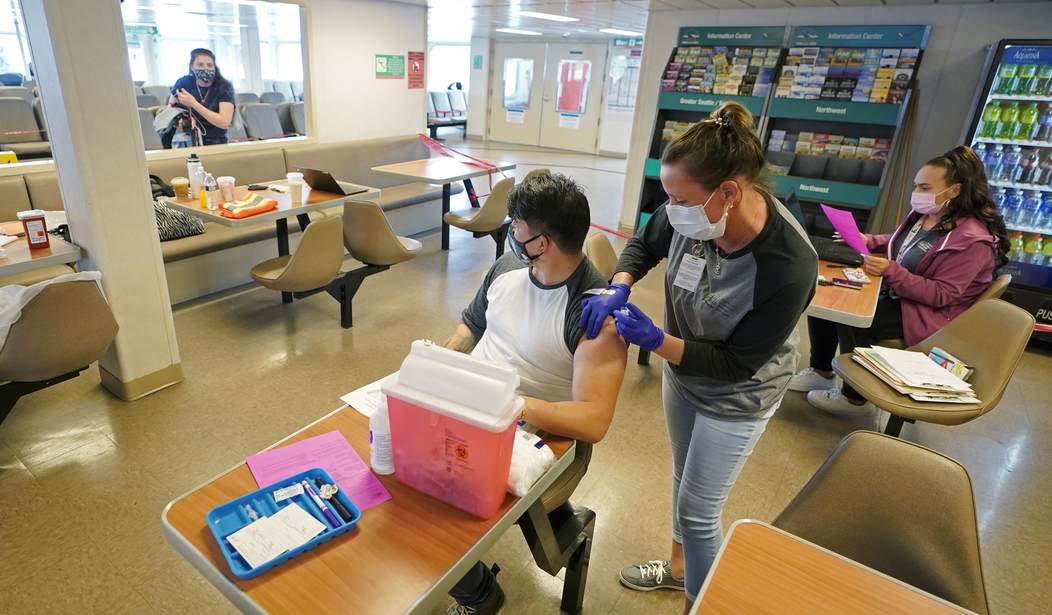For as many faults as the World Health Organization (WHO) has, it ought to be commended for taking a different approach to children amid the coronavirus pandemic than the Centers for Disease Control and Prevention (CDC). Particularly, it never advised children two and up to be masked as the CDC did. Given the "psychosocial and developmental milestones" in young children, the WHO recommended kids five and under don't wear them and those between 6-11 to only use them under certain conditions.
Similarly, until very recently, the WHO also advised against vaccinating children "for the moment."
Behold, its very reasonable position: "There is not yet enough evidence on the use of vaccines against COVID-19 in children to make recommendations for children to be vaccinated against COVID-19. Children and adolescents tend to have milder disease compared to adults."
Then something strange happened. Its tune changed a bit, which happened to coincide with Big Tech not liking this recommendation very much.
Can’t make it up. @facebook is censoring the @who recommendation that people under 18 not be vaccinated. pic.twitter.com/pYCUBUTsqO
— Alex Berenson (@AlexBerenson) June 22, 2021
Whoops! Left is yesterday’s, right today’s. My bad
— Alex Berenson (@AlexBerenson) June 22, 2021
And the revision of course gives @facebook and the tech censors an excuse to pull posts with the original recommendation; that’s why they had to make the change so fast, without even a fig leaf of new data.
— Alex Berenson (@AlexBerenson) June 22, 2021
Gone is the big headline that read, "Children should not be vaccinated for the moment." In its place is this:
Recommended
Children and adolescents tend to have milder disease compared to adults, so unless they are part of a group at higher risk of severe COVID-19, it is less urgent to vaccinate them than older people, those with chronic health conditions and health workers.
More evidence is needed on the use of the different COVID-19 vaccines in children to be able to make general recommendations on vaccinating children against COVID-19.
WHO's Strategic Advisory Group of Experts (SAGE) has concluded that the Pfizer/BionTech vaccine is suitable for use by people aged 12 years and above. Children aged between 12 and 15 who are at high risk may be offered this vaccine alongside other priority groups for vaccination.
Vaccine trials for children are ongoing and WHO will update its recommendations when the evidence or epidemiological situation warrants a change in policy. (WHO)
The Science is just rapidly evolving, I'm sure. Meanwhile, the CDC is having its emergency meeting this week to discuss the COVID-19 vaccines in adolescents, particularly discussing reports of myocarditis after receiving the mRNA vaccines.
























